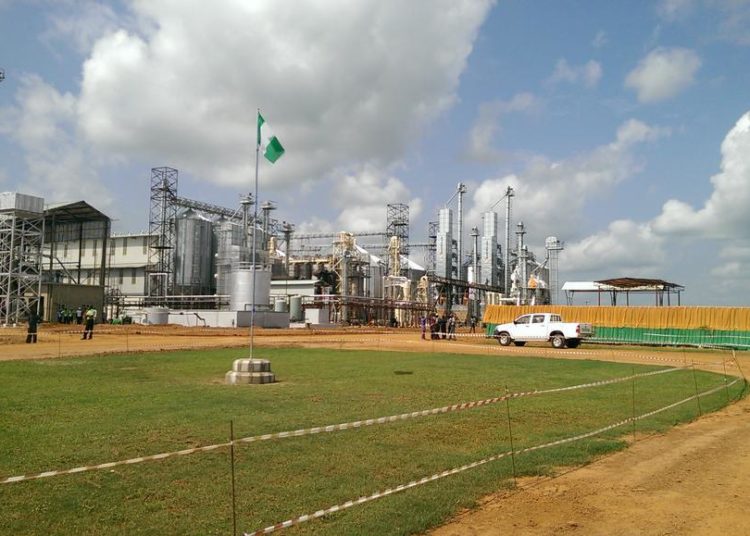Since the downturn in Nigeria’s economy in the late 1980s when the Nigerian government adopted the infamous Structural Adjustment Programme (SAP) to the privatisation and commercialisation era till the present dispensation, the economy is still not out of the woods.
Although the various administrations, past and present, have demonstrated their commitment to revamping the economy, the huge infrastructural deficit and the declining fortunes of the manufacturing sector have made experts call for an inward-looking approach to addressing the economic vagaries. There is a growing call for more investment in the fabrication sub-sector of the economy to drive the country’s industrialisation.
Those in this school of thought argued that any investment in local fabrication of tools create jobs, generate revenue, preserve foreign exchange and lessen importation of locally fabricated machines and equipment.
Nigeria and other African countries have also been challenged by economic and industry experts to use the challenges posed by the war between Russia and Ukraine, to embark on strategic industrialisation to become big players in the global economy.
The immediate past chairman of Nigerians in Diaspora Organisation Americas, Mrs Patience Key, believes that the Russia-Ukraine war would affect Nigeria, being an oil-producing country.
She told journalists in New York recently that the crisis would affect Africa’s economy and also threaten the global economy.
According to her, Russia’s invasion of Ukraine had led to a sharp rise in global oil prices amounting to almost $100 per barrel.
But when he addressed journalists in Warri, Delta State recently, Dr.Dott Giuseppe Paone, a former lecturer at the University of Milan (Italy) and the area manager, business development, procurement, project management, Europe and Africa of Lee Engineering Group, highlighted the opportunities the Russia-Ukraine war presented to Nigeria and other African countries if the right things are done.
Paone, an Italian, related the present situation to the industrial development experience of his home country (Italy), as he said, “In the early 1960s, Italy (after the Second World War) was destroyed.
“I read in the books and my grandfather also used to tell me that Italy became like today’s Ukraine – destroyed. The US came with funds and we started rebuilding. The development was rapid in the 60s. We started industrialisation from carbon steel, stainless steel, and petrochemicals. Today, what I see now in Nigeria is the same. You are experiencing the Italian 60s. So, you are developing so much because, from 2011, you have been the leading economy in Africa.
“Nigeria is the fifth largest exporter of crude oil globally. It is the biggest economy in Africa. The first country In Africa in terms of development is Ghana, but the country is small. Nigeria is far bigger. So, you are progressing so much, with many middle-class citizens here. When I came here, I noticed a lot of factories. The middle-class requests moderate houses, and also a lot of services,” he said.
On how the fabrication factory being established by the chairman of Lee Engineering Group, Dr.LeemonIkpea and related industries can drive Nigeria’s industrialisation, Paone said the Warri factory was initiated to complement the activities the company was already carrying out in the oil and gas industry.
While emphasizing the critical role the factory will play in the nation’s quest for industrial development, Paone said the goal is to produce pressure vessels, and heat exchangers meant for low, mid to high pressure for use in the oil and gas industry the same machine fabricate other industrial tools and equipment using carbon or stainless steel as material.
“Talking about stainless steel, I’ll give you an example. In the food industry, we need to transport things like milk, beer, and beverages with trucks. You will notice that, behind the trucks, there are tools and caps. So, we built the machines that can enable these tanks to be used for the transportation of beverages.
“We are not focusing only on oil and gas. Why do we want to do this? We know, from industry experience in Europe, that in developing countries like Nigeria, those goods are consumed by the middle class. So, the demand for these goods will increase. Their needs will also increase. We want to be leaders in their supply,” he said.
The move towards pioneering local fabrication of industrial tools and equipment in the oil and gas industry where the Lee Engineering Group was birthed dated back to 2009, when Ikpea incorporated Lee International Services Srl Italy to provide international services, training and technology development transfer, high skilled manpower provision, engineering designs, project management and international consultancies.
And because of his passion for business management in the oil and gas Industry, Paone who is on the ground assessment visit said, the fabrication factory would contribute enormously to the economic and industrial transformation of Nigeria.
He said, “The first impact will be on employment. The second will be on the economy itself because, instead of importing from foreign countries, Nigeria will become more independent. Those who will produce the spare parts needed for petrochemicals and refineries will be available at workshops in Nigeria, just as we have here at Lee Engineering. These parts could have been sourced somewhere else, outside of Nigeria. So, you only import raw materials, then you produce the needed parts here. That increases the wealth of the nation.”
These views are shared by two lecturers: C. Ocheri and O. Ajani of the Department of Metallurgical and Materials Engineering, University of Nigeria, Nsukka and Department of Mechanical Engineering, Federal University, Oye-Ekiti, who asserted that in advanced or developed economies industrialisation has been associated with ability to produce consumer and capital goods which enhance domestic self-sufficiency and reduce foreign exchange drainage; and ability to promote employment generation and local manpower development and hence increase in per capita income, purchasing power and potential to invest. The role of the iron and steel industry in national industrialisation is pre-eminent.” products to other countries.
To ensure the smooth running of the factory, Paone said Lee Engineering is training the local manpower, adding that over 30 people have been sent out for training in handling the machine in Italy.
Paone said the Lee Engineering Fabrication Factory will commence a test run this month.
Although he commended Ikpea for sponsorship of the factory, Paone advised the federal government to fast-track the industrial revolution by facilitating access to multinational development funds for development purposes.
Paone advised Nigeria to take advantage of the situation in Europe to fast-track its industrial development.
He said, “With the recent decline in energy supply caused by the ongoing Russian-Ukraine war in Europe, all the policies over there are currently being changed in a bid to help source gas. Europe at present has a good relationship with Nigeria, and I believe this presents a very good opportunity for Nigeria to take advantage of the shortfall. I mean right now – not next year but now.”





